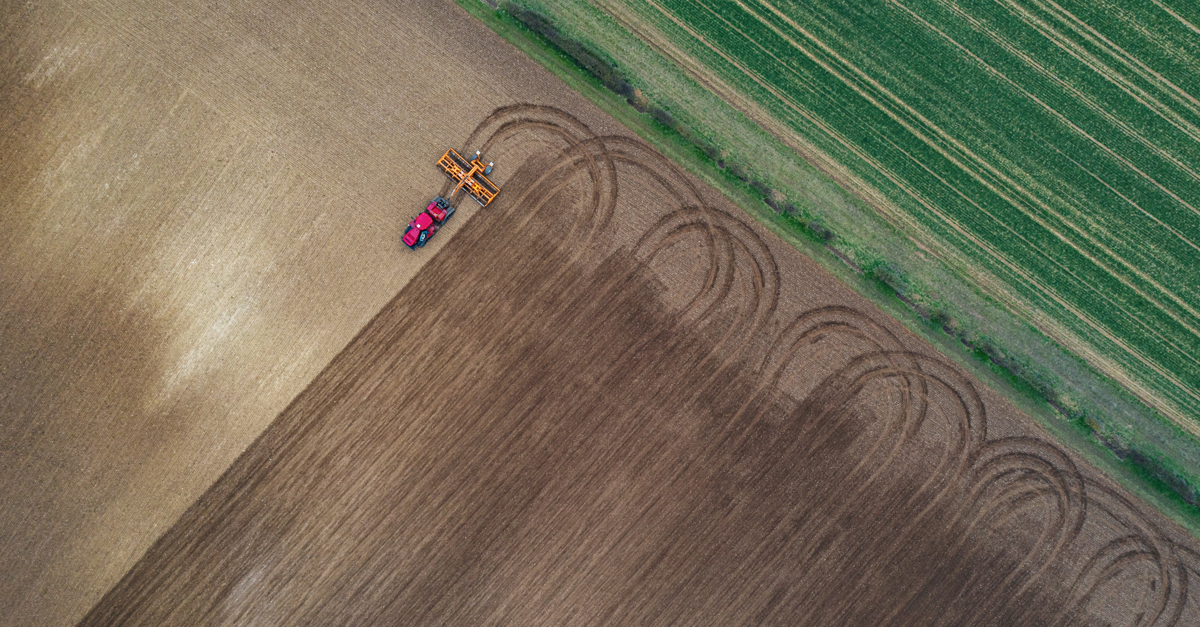
With the UN Sustainable Development Goals (SDGs) set to expire in 2030, focus has turned to the importance of natural capital to sovereign issuers.
It’s estimated that more than half of the world’s GDP – equivalent to USD ~58 trillion – is moderately or highly dependent on nature.
Research undertaken independently by central banks in the Netherlands, Malaysia, France, and Brazil has found that their national financial sectors have significant levels of exposure to companies that are highly or very highly dependent on one or more ecosystem services:
- Dutch financial institutions, through the companies they finance, have a biodiversity impact equivalent to the destruction of over 58,000 km2 of untouched natural areas.
- Approximately 87 percent of the commercial lending portfolio of Malaysian banks likely has a significant detrimental impact on ecosystem services (the many and varied benefits that the natural environment provides for humans). This results in a higher level of transition risk.
- The total terrestrial biodiversity impact of securities held by French financial institutions is akin to the destruction of at least 130,000 km2 of pristine nature, which corresponds to the complete artificialisation of 24 percent of the area of metropolitan France.
- Around 15 percent of the corporate loan portfolio of Brazilian banks is directed to companies that operate in protected areas. This percentage could increase to 25 percent if conservation gaps are closed, and up to 38 percent if all priority areas are designated as protected.
On reflection, it’s unsurprising that the value of sovereign bonds – which are one of the most systemic asset classes – is at least partially dependent on the management of natural capital by the countries concerned.
For sovereign bond issuers, they are therefore presented with two polar choices: Adopt a High Road approach, where countries actively safeguard and enhance the benefits of natural capital; or take a Low Road approach, where the continuation of business-as-usual practices undermines the flow of ecosystem services and negatively impacts the countries’ credit profiles, and consequently their access to international soft commodities markets (Soft commodities are commodities that are grown, rather than mined).
The Current Climate
According to the World Economic Forum, biodiversity loss is one of the top three financial risks we face globally over the next 5 to 10 years. In the coming decades, the risk of extinction looms over one million species, surpassing the average extinction rates witnessed over the past 10 million years - by tens to hundreds of times.
Insurance Group Munich Re has calculated that natural disasters will incur global losses of USD 177 billion per year on average. In 2018, meteorological events such as tropical storms accounted for 58 percent of these losses; climatological losses such as drought corresponded to 20 percent; hydrological events such as floods represented 14 percent and the remaining 8 percent were geophysical in nature.
Concerns regarding food insecurity, exacerbated by climate change, have even prompted countries to restrict agricultural exports during periods of deficit. Last year, the Indian government announced a ban on wheat exports citing the need to meet food security requirements as the country experienced record-high temperatures across several cities.
Sovereign Health and Natural Capital – what is the connection?
Sovereign Health is the term used to describe the capacity of countries to issue and repay debt in alignment with the SDGs. In practice, this considers whether countries with substantial natural capital can sustain their capacity to produce soft commodities, curb weakened fiscal performance and manage their own sovereign credit risk.
Data from the World Bank and World Trade Organisation shows that between 2010-17, three countries in the G20 – Argentina, Brazil, and Indonesia – faced considerable exposure to fluctuations in soft commodity exports. These countries exhibited a high dependency on agriculture for exports, which has also meant a high reliance on nature for (CAR).
Consider it this way: when a country relies heavily on selling a particular soft commodity, for example corn, it earns revenue in foreign currencies. These foreign currencies are essential for conducting international trade, paying for imports, and meeting external debt obligations. So if there’s a shortage or disruption in the sale of corn, it directly affects the country’s ability to accumulate the necessary foreign currencies.
Therefore, if Argentina wants to generate the CAR needed to meet its debt obligations with investors, this will require strong performance from the agricultural sector, which represents around 60 percent of its goods exports.
This isn’t as easy as it sounds. Nature is non-linear, complex and dynamic – you cannot always rely on it to remain the same or conform to predictable patterns.
As one example, Argentina is emerging from a historic drought which the IMF estimate to leave a USD 5 billion hole in the country’s exports. The government is struggling to place the new issuances needed to finance upcoming debt payments, and the market has long signalled concerns about Argentina’s ability to pay back the debt it already has.
In response to these risks, it’s clear that a number of safeguarding mechanisms must be put in place.
How the Market has Shifted
In the aftermath of the Amazon rainforest fires, 246 investors representing approximately USD 17.5 trillion in assets signed a statement on deforestation and forest fires.
The statement urged companies to enhance their endeavours in eradicating deforestation from their supply chains. This includes the requirement to disclose and adopt zero-deforestation policies, evaluate and mitigate deforestation risks in their operations, establish transparent monitoring systems, and provide comprehensive reports detailing their actions.
European retailers, including Tesco and M&S, have threatened to boycott Brazilian products, and EU Member States delayed trade deals over similar concerns. Although these events are isolated, they do demonstrate a new willingness to act when it comes to sovereign debt and nature.
The Pathways for Governments
Delivering on the agenda for a greener, more resilient, and sustainable approach to natural capital is already underway.
The EU has implemented new regulations regarding indirect land use change, specifically focusing on the conversion of natural habitats, in relation to biofuels. Essentially, member states are restricted from using agricultural biomass obtained from areas with high biodiversity value and substantial carbon stocks.
In a similar vein, France has adopted a National Strategy to Combat Imported Deforestation, which aims to end the import of unsustainable forest and agricultural products by 2030.
Encouragingly, the first stage in strengthening natural capital policy through the UN’s Principles for Responsible Investment is planned to happen as soon as 2023-25. .
Scenario models commissioned by The Inevitable Policy Response (IPR) consortium predict that the land use sector will be transformed by flows from carbon finance, while limitations on land use will encourage investments in technologies that enhance agricultural yields.
The expected policy response will be to include the introduction of carbon pricing to make the cost of emitting more expensive, encourage the eradication of deforestation by 2030, and increase efforts to improve agricultural yields and recovery of forest areas to 1995 levels between 2030 and 2035.
Competitive carbon prices for first movers will make it financially viable to halt deforestation and pursue reforestation instead. For countries based in the tropical and sub-tropical regions of the world, mangrove conservation programmes could serve as a crucial component of this.
Neglecting the impact on our environment and natural capital is no longer viable for countries’ financial health, their progress towards the SDGs or effective risk mitigation for issuers. And this will only become more of a priority moving forwards.

